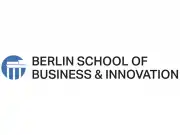Business programs in Germany
- Brief overview of Business programs in Germany
- Features of Business programs in Germany
- Advantages of Business programs in Germany
- Disadvantages of Business programs in Germany
- German universities offering Business programs
- Admission requirements for Business programs in Germany
- Documents for Business program applications in Germany
- Tuition fees for Business programs in Germany
- Scholarships and grants for Business programs in Germany
- Career prospects after Business programs in Germany
- Is it worth studying Business programs in Germany?
- Frequently Asked Questions

Master of Science - Business Management
GISMA Business SchoolManagement is the backbone of any business, so if you want to stand out in today's more competitive global economy, you need to show that you have the chops to lead. With a master's degree in business management under your belt, you'll be ready to take on any leadership role in the commercial world.…

Master of Science - Digital Marketing
Berlin School of Business and InnovationDegree awarded by University for the Creative Arts (UCA)
As a global institution, BSBI strives to give students new opportunities and challenges.
We'll help you expand your ambitions and give you the confidence to achieve them.
This course helps you expand your…

Master of Science - Finance and Investment
Berlin School of Business and InnovationDegree awarded by University for the Creative Arts (UCA)
As a worldwide university, BSBI seeks to give students new chances and challenges. Our objective is to help you grow in your academics and career.
This course covers financial analysis, corporate finance, quantitative…

MBA - Master of Business Administration
University of Europe for Applied Sciences - GermanyCompanies today face problems due to digitalization, globalization, and the rising demand for sustainability.
Professionals and executives with the ability to spot and implement novel, future focused company models are in high demand.
You may build a solid foundation for your professional…

Master of Business Administration - Sustainable Water Management
University of Europe for Applied Sciences - GermanyThe private and public sectors, as well as between political institutions and nations, are increasing their focus on resource conservation, water supply, and use.
Because of this demand, there is a greater requirement for solutions that are grounded in science and are in step with the most…

Master in Business Administration (MBA) - UCA
Berlin School of Business and InnovationDegree awarded by University for the Creative Arts
If you're interested in expanding your professional horizons, a Global MBA from BSBI is a great way to get insight into the international business scene and make connections with peers from all around the world.
Therefore,…

Master in Business Administration (MBA) - CUC
Berlin School of Business and InnovationDegree awarded by Concordia University Chicago
An MBA is a great method to get the business training and professional experience you need to take your career to the next level. It can pave the way to higher-level roles, higher salaries, and greater chances.
Many various…

Bachelor of Science (Hons) - Accounting and Finance
Lancaster University, Leipzig, GermanyThe question is, why do certain businesses thrive while others fail? A rising profit margin in the face of falling stock prices begs the question: how is this possible?
Accounting provides answers to these fundamental problems. Accounting and finance could be the perfect major for you if…

Bachelor of Science (Hons) - Business Management
Lancaster University, Leipzig, GermanyAre you interested in learning the inner workings of corporations and their management structures?
Courses at Lancaster University are made to help you think critically and gain insights from the real world.
Your communication and numeracy skills, among others, will also improve.…

Foundation - Business
Lancaster University, Leipzig, GermanyFoundation Year is for students who don't meet direct entry requirements (English level, school qualifications, etc.) or who want to gain subject or academic confidence before starting their degree.
Guaranteed admission to BSc (Hons) Accounting and Finance or Business Management (subject…
Brief overview of Business programs in Germany
Business education in Germany combines academic rigor, practical orientation, and international context. International students choose Germany for its high-quality specialist training, education affordability, and excellent career prospects. Bachelor's and master's programs cover various fields: management, international business, marketing, finance, entrepreneurship, and digital transformation.
Germany offers a wide choice of institutions - from public universities to private business schools. Students receive not only fundamental knowledge but also opportunities for internships, international projects, and research initiatives.
Features of Business programs in Germany
German business programs are distinguished by:
- International orientation. Many courses are taught in English, making them accessible to international students.
- Strong practical component. The curriculum includes case studies, company projects, business simulations, and internships.
- Integration of digital skills. Courses cover digital economy, innovation management, big data, and startup culture.
- Flexible study structure. Opportunity to combine studies with work (in dual studies format), participate in exchange programs, and create individual learning paths.
Some programs include mandatory internships at German or international companies, significantly improving employment chances in Europe.
Advantages of Business programs in Germany
Key benefits for international students:
- Education quality. German universities rank high internationally, and degrees are recognized worldwide.
- Affordable costs. Public universities offer free education or minimal semester fees (€100-350).
- Developed business environment. Germany is the largest EU economy, home to companies like Siemens, BMW, SAP, Deutsche Bank.
- International environment. Classrooms include students from worldwide, with teaching primarily in English.
- Career prospects. Graduates find jobs in Germany and other EU countries thanks to post-study job search programs (up to 18 months).
- Focus on sustainability and innovation. Modern programs cover ESG, digital transformation, ecological entrepreneurship.
Disadvantages of Business programs in Germany
Despite the advantages, there are certain challenges:
- Language barrier. While teaching is often in English, daily life requires German knowledge.
How to overcome: learn German beforehand, use university language courses or online resources. - High competition. Especially at top universities and for scholarship programs.
How to overcome: prepare documents early, improve academic performance, include motivation letters and recommendations. - High living costs. In major cities like Munich and Frankfurt, housing is expensive.
How to overcome: choose student dorms, apply for financial aid or scholarships. - Adaptation to the education system. Independence, academic freedom, and intensive schedules may be unfamiliar.
How to overcome: participate in orientation programs, seek support from tutors and advisors.
German universities offering Business programs
Below is a table with examples of universities and business schools:
| University / Business School | City | Programs | Language of Instruction |
|---|---|---|---|
| University of Mannheim | Mannheim | BSc/MSc in Business Administration | English/German |
| WHU – Otto Beisheim School of Management | Vallendar | Bachelor/Master in International Business | English |
| Ludwig Maximilian University of Munich (LMU) | Munich | Management, Economics | German/English |
| EBS Universität für Wirtschaft und Recht | Wiesbaden | BSc/MSc in Business, Finance | English |
| Frankfurt School of Finance & Management | Frankfurt | BSc/MSc in Business, Digital Innovation | English |
| Hochschule Bremen – International School of Business | Bremen | International Business | English |
Admission requirements for Business programs in Germany
Requirements vary depending on education level and university type:
For bachelor's:
- Secondary school diploma equivalent to German Abitur
- English proficiency certificate (IELTS 6.0+, TOEFL 80+) or German (TestDaF, DSH)
- Motivation letter and CV (if required)
For master's:
- Bachelor's degree in economics, business or related field
- Language certificates
- Recommendation letters, portfolio (sometimes)
- GMAT / GRE - optional but preferred
Documents for Business program applications in Germany
Required documents:
- Completed application form
- Certified copies of diplomas/degrees and transcripts
- Language certificate
- Motivation letter
- Resume (CV)
- Recommendation letters (1-2)
- Passport copy
- Photo
- Portfolio (for creative programs)
- Proof of application fee payment (if required)
Tuition fees for Business programs in Germany
At public universities:
- Tuition: Free (exception - Baden-Württemberg: €1500/semester for internationals)
- Semester fee: €100-350 (includes transit pass)
At private business schools:
- Tuition: €5,000-20,000 per year
Additional expenses:
- Accommodation: €300-800 per month
- Food, transport, insurance: €250-400 per month
- Insurance: about €110/month
Scholarships and grants for Business programs in Germany
Scholarship options for international students:
- DAAD (German Academic Exchange Service)
- Master's: from €850/month
- Includes insurance, travel, and German courses
- Erasmus+ Scholarships
- For exchange programs and joint master's
- Konrad Adenauer Foundation, Heinrich Böll Foundation
- For socially active students
- University scholarships (internal)
- Examples: WHU Excellence Scholarship, EBS Stipendium
Career prospects after Business programs in Germany
Business program graduates in Germany have competitive advantages in the international job market. Employment opportunities exist in private sector, international organizations, startups, consulting and audit firms.
Most in-demand fields:
- Consulting and audit: McKinsey, BCG, KPMG, EY, PwC
- Financial sector: Deutsche Bank, Allianz, Commerzbank
- Technology and digital business: SAP, Zalando, N26, Delivery Hero
- Manufacturing and industrial corporations: Siemens, Bosch, BMW, Bayer
- Logistics and e-commerce: DHL, Amazon Germany, Otto Group
- Entrepreneurship: many graduates start businesses in Germany with university incubator support
Salary levels:
- Entry-level: €40,000-55,000 per year
- After 3-5 years: €60,000-90,000
- In top fields (finance, consulting): €100,000+ with experience
International graduates can stay for 18 months to seek employment. With a job contract, they can obtain a work visa and later an EU Blue Card, simplifying the path to permanent residence.
Is it worth studying Business programs in Germany?
Certainly, business education in Germany is a strategically sound decision for both personal and professional growth. Here's why:
- Recognized degrees. German business programs are respected in Europe, Asia, North America.
- Practice-oriented education. Germany offers not just theory but industry connections through internships, projects, and dual programs.
- Affordability. Among Europe's lowest tuition fees while maintaining high quality.
- International career. Germany is the "gateway" to the European job market, with German+English opening doors to prestigious positions.
- Safety and high living standards. Students receive insurance, university support, and comfortable infrastructure.
If you're aiming for a career in business, finance, IT, or project management - studying in Germany can be an excellent start. The key is proper preparation, language learning, and taking advantage of opportunities the country offers.
Frequently Asked Questions
1. Is German language required for business programs in Germany?
No, many programs are taught entirely in English. However, German knowledge facilitates daily life and employment.
2. How much does education in Germany cost for international students?
Public universities are free or charge €1500/semester (in some states). Private universities cost more - from €5,000 per year.
3. Can students work while studying?
Yes, international students can work 120 full or 240 half days per year.
4. What documents are needed for application?
The list includes diploma/degree, language certificate, motivation letter, resume and other documents (see above).
5. Are there chances to get scholarships?
Yes, especially for master's. Scholarships are offered by DAAD, Erasmus+, foundations, and universities themselves.